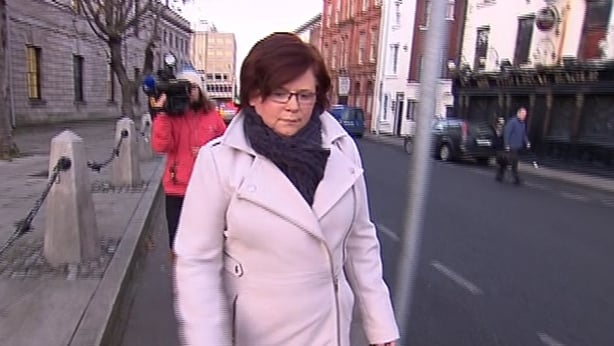RTÉ's courts reporter Vivienne Traynor looks at the detail behind Ian Bailey's case against the State.
It was described in court as a case that goes to the heart of our democracy.
The question: whether or not we could trust the forces of law and order to uphold the law on our behalf.
The jury was told some gardaí conspired to implicate Ian Bailey in the murder of Sophie Toscan du Plantier and set out to blame him for a crime he did not commit.
The key witness, Marie Farrell, told the court she was pressurised into identifying Mr Bailey as the man she had spotted near the murder scene and later to make false claims of intimidation against him.

Years later, when her relationship with gardaí had soured, she decided to tell the truth.
Her evidence was dramatic, not least for its allegations about the sexual conduct of two gardaí.
At one point she walked out of the witness box, refusing to answer questions. Later she was warned by the judge about the penalties for perjury.
Another witness, Martin Graham, said he was offered cannabis and cash by gardaí to get information.
Mr Bailey spent nine days in the witness box, most of those under cross-examination.
He said his life had been destroyed by gardaí who branded him as a prime suspect. He had lost all his friends and his career.
His lawyers said gardaí approached the case with tunnel vision, concentrating on anything that pointed to his guilt while ignoring everything to support his innocence.
But the investigating gardaí said he was treated like any other suspect.
They had many reasons to suspect him quite apart from the evidence of Ms Farrell.
He had a history of violence, he had given differing accounts of his movements, he had scratches on his hands. He had also told people he had done it and he seemed to have knowledge of the murder that he should not have had.
Counsel for the State Luán Ó Braonáin said it did not matter now if that information was true or false, right or wrong.
That was not part of this case and it did not have to be, but taken together that information gave gardaí reasonable grounds to suspect Mr Bailey and a necessity to arrest and question him.
But, in a dramatic development at the end of the case, Mr Bailey's claim for wrongful arrest, along with most of his other claims, were struck out.
Lawyers for the State argued they were statute barred - they had not been made in the six-year time limit required by law.
The judge said the application had been made at the latest possible stage but he agreed and ruled that most of Mr Bailey's case was out of time.
However, he allowed the claim for conspiracy to remain.
The statements from Ms Farrell were still on file, gardaí had said in evidence the investigation was ongoing.
Because these statements were still hanging over him, he had an ongoing cause of action.
The entire case was then reduced to key questions which the judge said was the central plank of the case.
The jury was asked to decide if gardaí had conspired to implicate Mr Bailey by getting statements from Ms Farrell using threats, inducement or intimidation.
Today, the jury answered those questions, ending the longest running civil case to be heard before a jury.
Anda sedang membaca artikel tentang
Ian Bailey's civil case comes to an end
Dengan url
http://newsdeadlineup.blogspot.com/2015/03/ian-baileys-civil-case-comes-to-end.html
Anda boleh menyebar luaskannya atau mengcopy paste-nya
Ian Bailey's civil case comes to an end
namun jangan lupa untuk meletakkan link
Ian Bailey's civil case comes to an end
sebagai sumbernya
0 komentar:
Posting Komentar